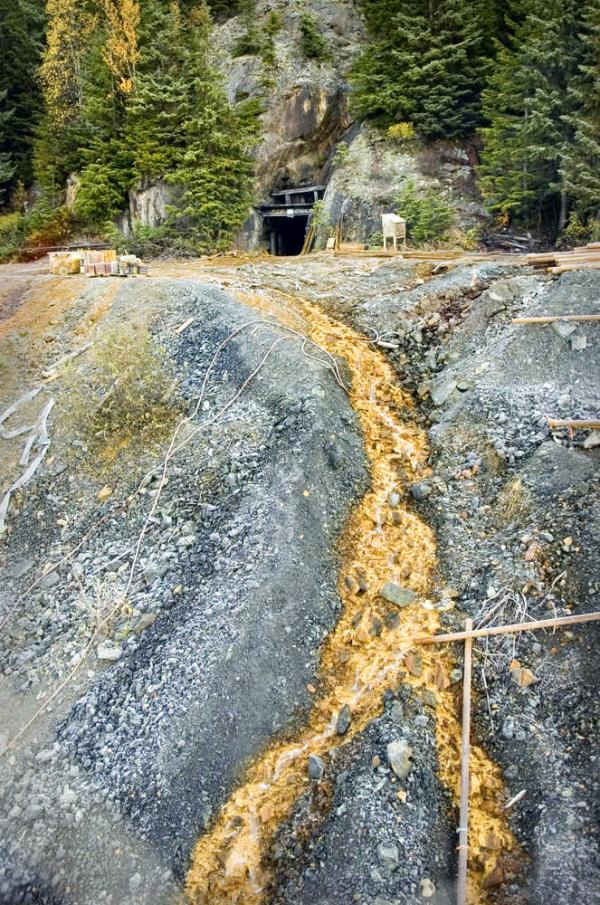JUNEAU — Canadian officials say they will take action to prevent polluted water from a decades-old mine from entering the Taku River, a key source of salmon caught in Southeast Alaska.
British Columbia Ministry of Energy and Mines Minister Bill Bennett told CoastAlaska News experts will explore different options, including plugging leaking tunnels from the defunct Tulsequah Chief Mine. The acidic water has been carrying pollutants into the Tulsequah River, which is a tributary of the Taku near Juneau.
The mine hasn’t operated since 1957, and the two companies that tried to reopen it in the last 20 years have been unsuccessful.
Canadian officials had ordered the site’s most recent developer, Chieftain Meals, to clean up the site, but the company went bankrupt last fall.
“They were not able before freeze-up to do anything about the settling pond that exists beside the river that captures the runoff from the hill that the old mine was built into,” Bennett said.
A government contractor took care of improperly stored chemicals and petroleum products.
“Even though the water that’s been tested by both Alaska and British Columbia has shown no negative impacts on aquatic organisms, it’s still against our rules for that water to be flowing into the Tulsequah River. So, one way or the other, we have to stop it,” Bennett said.
Chris Zimmer, Alaska campaign director for the group Rivers Without Borders, has been calling for a cleanup of the site for years.
“In the past, B.C. was simply saying we’re going to let the mining companies come in, develop the mine and clean it up. I think now Minister Bennett realizes that after two bankruptcies that this mine isn’t one that will be developed and B.C.’s now going to have to responsibility for the cleanup,” Zimmer said.
But Bennett acknowledges that a new company could take over the Tulsequah mine, which is owned by a Canadian firm. Any new developer would have to adhere to higher standards for the site, Bennett said.
“We would need an ironclad commitment from any new buyer that they were going to do what’s necessary immediately. And if we can’t get that, then the government would act on the closure and remediation plan and just simply close the site down,” Bennett said.

